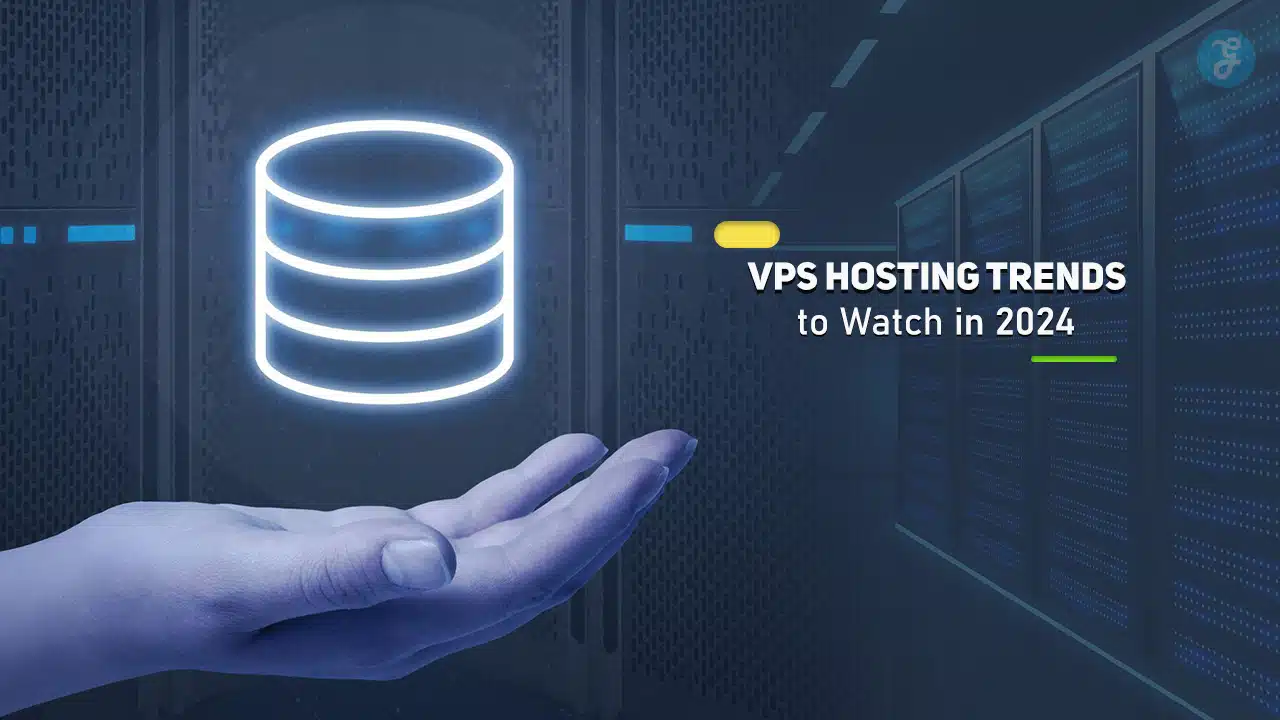As businesses increasingly move towards online platforms and digital ecosystems, Virtual Private Server (VPS) hosting has emerged as one of the most reliable, flexible, and cost-effective solutions for web hosting.
According to projections, the demand for VPS hosting will increase even more in 2025 as a result of new technologies and changing business and developer needs.
In this comprehensive guide, we will dive deep into 6 key VPS hosting trends you need to watch in 2025.
Whether you’re a small business owner, a developer, or an IT professional, understanding these trends will help you stay ahead of the curve and make informed decisions regarding your hosting needs.
What is VPS Hosting?
VPS hosting refers to a type of web hosting where a physical server is divided into multiple virtual servers, each operating independently.
Unlike shared hosting, where resources are shared among many users, VPS offers dedicated resources such as CPU, RAM, and disk space. This allows users to experience the benefits of a dedicated server at a fraction of the cost.
Each virtual server runs its own operating system and can be rebooted independently, providing more control, flexibility, and security compared to shared hosting.
VPS is the perfect balance for businesses or developers who need more than shared hosting can offer but aren’t ready for the higher costs of a dedicated server.
Why VPS Hosting is Gaining Popularity?
The popularity of VPS hosting has grown significantly over the years due to its scalability, cost-effectiveness, and customization options.
With the rise of eCommerce, SaaS applications, and dynamic websites, businesses require more than just basic hosting. They need resources that can be tailored to their specific needs without the high price tag associated with dedicated servers.
Moreover, as data privacy concerns increase and cybersecurity becomes more crucial, VPS hosting provides a more secure environment for sensitive data compared to shared hosting.
This blend of control, performance, and affordability makes VPS hosting the go-to choice for many growing businesses and developers.
1. Rise of AI and Machine Learning in VPS Management
Artificial Intelligence (AI) and Machine Learning (ML) are revolutionizing the tech industry, and VPS hosting is no exception.
In 2025, the integration of AI and ML into VPS management will become even more widespread, offering users smarter, more efficient solutions.
From automating routine server maintenance tasks to optimizing resource allocation, AI is poised to enhance the overall performance and reliability of VPS hosting environments.
AI can also predict server demands and help optimize workloads in real time, ensuring that your server resources are used efficiently. This not only minimizes downtime but also reduces costs by preventing over-provisioning of resources.
Benefits of AI-Powered VPS Hosting
- Enhanced Resource Management: AI can dynamically allocate resources like CPU and RAM based on current usage patterns, ensuring that your server is never over or under-utilized.
- Predictive Maintenance: AI-powered systems can predict when hardware components are likely to fail and alert administrators to replace them before a crash occurs.
- Automated Security Monitoring: AI can detect potential security threats, such as DDoS attacks or malware, in real time and take action before significant damage occurs.
In 2025, AI-driven VPS hosting solutions will become more accessible to businesses of all sizes, allowing even small enterprises to benefit from cutting-edge technology without needing a large in-house IT team.
Practical Use Cases for AI in VPS Hosting
- Auto-Scaling: VPS systems powered by AI can automatically scale resources up or down based on real-time traffic demands, making it easier to handle spikes in web traffic.
- Load Balancing: AI algorithms can distribute server load more evenly, reducing the risk of slowdowns or crashes during peak traffic periods.
- Automated Backups: With AI, VPS hosting can automate backup processes, ensuring that important data is securely stored without human intervention.
The rise of AI in VPS management marks a significant shift in how servers are managed, monitored, and optimized. This trend is expected to dominate 2025 as more businesses look for ways to automate and improve the efficiency of their hosting infrastructure.
2. Enhanced Security Measures with Zero Trust Architecture
In the digital age, cybersecurity is no longer a luxury—it’s a necessity. With the rise in data breaches, ransomware attacks, and other cyber threats, businesses are more concerned than ever about the security of their data and systems.
As VPS hosting gains popularity, providers are implementing enhanced security measures to protect users from these growing threats.
One of the most prominent security trends in 2025 will be the adoption of the Zero Trust Architecture (ZTA) in VPS environments. The Zero Trust model operates under the presumption that no one, either inside or outside the network, is trustworthy by default. Instead, every user and device attempting to access the network must be continuously verified.
How Zero Trust Architecture Works
Zero Trust eliminates the notion of trusted zones within a network, ensuring that no access is granted until authentication is performed. Even if a hacker gains access to a part of the network, they won’t be able to move laterally without being detected.
The key components of Zero Trust Architecture include:
- Strict Identity Verification: All users and devices must be authenticated, regardless of whether they are inside or outside the network.
- Micro-Segmentation: The network is divided into smaller segments, and access is restricted to only those resources the user needs to perform their tasks.
- Continuous Monitoring: Real-time monitoring of network traffic ensures that any suspicious activity is detected immediately.
Security Benefits for VPS Users
For VPS hosting users, adopting Zero Trust will provide multiple layers of protection:
- Improved Data Protection: Sensitive data stored on your VPS will be better protected from unauthorized access or breaches.
- Reduced Attack Surface: By segmenting your VPS environment and verifying access at every level, you can minimize potential entry points for attackers.
- Real-Time Threat Detection: Continuous monitoring and real-time alerts mean that security threats can be detected and neutralized before they cause damage.
As cyber threats continue to evolve, Zero Trust Architecture will become the gold standard in VPS hosting security in 2025, offering enhanced protection against modern threats.
3. Growing Demand for Green VPS Hosting
With climate change and environmental sustainability becoming global concerns, many industries are rethinking their environmental impact, and the hosting industry is no exception.
In 2025, Green VPS hosting will be a significant trend as more businesses demand eco-friendly hosting solutions.
Traditional data centers consume vast amounts of energy, contributing to carbon emissions and environmental degradation. Green VPS hosting focuses on minimizing this environmental impact by using renewable energy sources, optimizing energy usage, and reducing the carbon footprint of hosting operations.
How Green VPS Hosting Works?
Green VPS hosting providers aim to operate energy-efficient data centers powered by renewable energy sources, such as wind, solar, or hydropower. These providers also implement advanced technologies that optimize server performance to reduce energy consumption, such as:
- Server Virtualization: By hosting multiple virtual servers on a single physical machine, providers can maximize resource usage and reduce the number of physical servers required.
- Energy-Efficient Hardware: Green hosting companies use energy-efficient hardware designed to consume less power while delivering high performance.
- Cooling Systems: Data centers with advanced cooling technologies, such as liquid cooling, reduce the amount of energy needed to maintain optimal operating temperatures.
Why Green Hosting Matters?
Switching to a green VPS hosting provider can have significant environmental benefits:
- Lower Carbon Footprint: Green hosting reduces the environmental impact of running servers by relying on renewable energy and energy-efficient practices.
- Positive Brand Image: As businesses and consumers become more eco-conscious, companies that prioritize sustainability can attract more customers and improve their reputation.
- Cost Savings: While green hosting providers may have slightly higher upfront costs, the long-term energy savings and operational efficiency can lead to reduced costs over time.
With businesses increasingly prioritizing sustainability, green VPS hosting is set to be one of the key trends of 2025. Companies that adopt environmentally-friendly hosting practices will not only reduce their environmental impact but also position themselves as eco-friendly leaders in their industries.
4. Increased Adoption of Cloud-Native VPS Hosting
As more businesses migrate to the cloud, cloud-native technologies are becoming increasingly prevalent in VPS hosting.
Cloud-native VPS hosting is a modern approach to hosting where applications are built, deployed, and managed in the cloud using containerization, microservices, and orchestration tools like Kubernetes.
Unlike traditional VPS hosting, which relies on physical servers, cloud-native VPS hosting leverages the power of the cloud to provide scalability, flexibility, and resilience.
This trend is expected to gain significant traction in 2025 as businesses seek faster deployment, better performance, and enhanced reliability.
Key Features of Cloud-Native VPS Hosting
- Containerization: Applications are packaged into containers, which allow them to run consistently across different environments. This simplifies deployment and reduces compatibility issues.
- Microservices Architecture: Applications are broken down into smaller, independent services that can be developed, deployed, and scaled individually.
- Kubernetes and Orchestration: Kubernetes is widely used to automate the deployment, scaling, and management of containerized applications, ensuring high availability and optimized resource usage.
Why Cloud-Native Hosting is the Future?
In 2024, businesses will continue to adopt cloud-native VPS hosting due to its numerous benefits:
- Scalability on Demand: Cloud-native VPS hosting allows for rapid scaling of resources based on demand, making it ideal for businesses with fluctuating traffic.
- Faster Deployment: Containerization and microservices enable faster deployment cycles, allowing businesses to launch new features and updates quickly.
- Improved Resilience: Cloud-native applications are designed to be fault-tolerant, ensuring that they remain operational even if one component fails.
By 2025, businesses of all sizes will embrace cloud-native VPS hosting as a way to modernize their infrastructure and stay competitive in an increasingly digital world.
5. Rise of Edge Computing and VPS Hosting
Another major trend to watch in 2025 is the rise of edge computing in VPS hosting. Edge computing refers to processing data closer to the location where it’s being generated rather than relying on centralized data centers.
This is done by using edge servers, which are strategically located near end-users to reduce latency and improve performance.
For VPS hosting, this means moving from traditional, centralized data centers to decentralized edge servers, enabling faster data processing, improved response times, and lower bandwidth usage.
With the explosion of IoT devices and real-time applications, edge computing is becoming increasingly important in the hosting landscape.
How Edge Computing Enhances VPS Hosting?
- Reduced Latency: By processing data at the edge of the network, VPS hosting providers can deliver faster load times and more responsive services to users.
- Improved Performance for IoT: Edge computing is ideal for IoT applications that require real-time data processing, as it allows devices to communicate more efficiently.
- Better User Experience: End-users will experience less lag and downtime, particularly for applications that rely on low-latency communication, such as gaming or video streaming.
Why Edge Computing Will Dominate in 2025?
In 2025, edge computing will become a game-changer for VPS hosting. With more businesses relying on real-time applications, smart devices, and IoT ecosystems, edge computing provides the infrastructure necessary to support these technologies:
- Faster Content Delivery: Edge servers can store and deliver content locally, improving website load times and overall performance for users around the world.
- Increased Data Privacy: Processing data closer to the source helps reduce the risk of data breaches by limiting the amount of sensitive information traveling across long distances.
As edge computing continues to expand, VPS hosting providers will increasingly offer edge-based solutions to meet the growing demand for low-latency, high-performance hosting services.
6. Hybrid VPS Hosting Solutions for Greater Flexibility
Hybrid VPS hosting is an emerging trend that combines the best features of cloud hosting, dedicated servers, and traditional VPS hosting.
It offers the flexibility and scalability of the cloud, the control and performance of dedicated servers, and the affordability of VPS hosting. This allows businesses to create custom hosting environments that meet their unique needs.
In 2025, more companies will turn to hybrid VPS solutions as they look for ways to balance performance, security, and cost.
Benefits of Hybrid VPS Hosting
- Customizability: Hybrid VPS hosting allows businesses to choose which resources they want to manage on dedicated servers and which they want to scale in the cloud.
- Enhanced Performance: By combining dedicated hardware with cloud scalability, hybrid hosting delivers optimal performance, even for resource-intensive applications.
- Cost Efficiency: Hybrid solutions allow businesses to allocate resources based on their current needs, reducing costs while maintaining flexibility.
Use Cases for Hybrid VPS Hosting
- E-commerce Platforms: Hybrid hosting is ideal for e-commerce businesses that require high performance during peak shopping seasons but want to reduce costs during off-peak times.
- SaaS Applications: Software companies can use hybrid VPS hosting to run intensive processing tasks on dedicated servers while leveraging the cloud for scalable data storage.
- Media Streaming: Media platforms benefit from hybrid hosting by utilizing cloud servers for scalability while relying on dedicated servers for high-quality video rendering.
Why Hybrid Hosting is the Future?
In 2025, hybrid VPS hosting will become the go-to solution for businesses looking for greater control, flexibility, and cost savings.
As companies move toward more complex infrastructure needs, hybrid VPS hosting provides the perfect balance between performance and scalability, making it one of the most sought-after hosting trends of the year.
Conclusion: Preparing for the Future of VPS Hosting
The VPS hosting industry is undergoing significant transformations, driven by new technologies and the evolving demands of businesses. From AI-powered infrastructure to green hosting and edge computing, the 6 VPS hosting trends highlighted in this article are set to shape the future of the industry in 2025.
As businesses look for more secure, scalable, and environmentally friendly hosting solutions, staying informed about these trends is crucial.
Whether you’re a small business owner, a developer, or an IT professional, understanding these emerging trends will help you make the best decisions for your hosting needs, ensuring that your website or application runs smoothly, securely, and efficiently.
By adopting the latest VPS hosting innovations, you can future-proof your online presence, reduce operational costs, and stay ahead of the competition in the fast-evolving digital landscape.






































